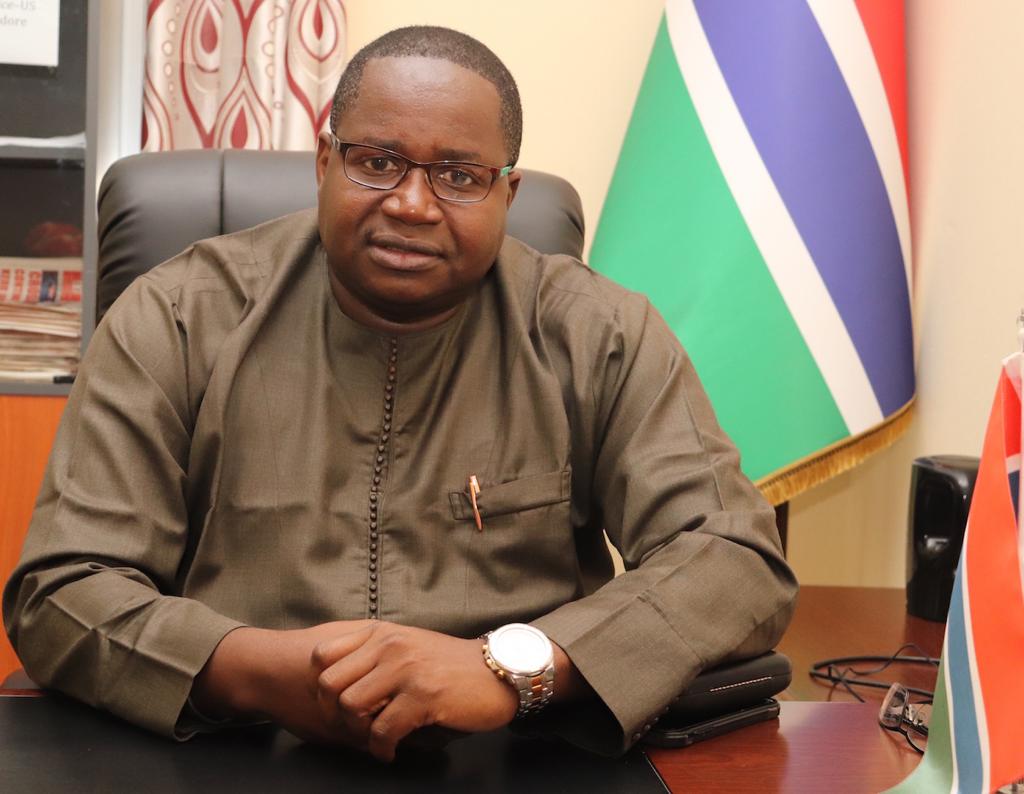Government Denies Claims of President Barrow Communicating with Exiled Former President Jammeh

By Buba Gagigo
The Gambian government has refuted claims that President Adama Barrow has communicated with former President Yahya Jammeh, who is currently in exile.
Responding to allegations made by Senegalese journalist Pape Sane, who claimed to have interviewed Jammeh, government spokesman Ebrima G. Sankareh stated that the government is aware of the circulating video on social media.
*The government, for the time being, wants to make clarifications about key issues raised by the journalists, and would also wait for the actual publication of the magazine by the fifth or sixth of July, as promised. Number one, President Adama Barrow has never ever spoken to former president Jammeh directly, indirectly, or through an interlocutor, an emissary or emissaries or agents ever since he left this country. Ever since he left the Gambia, President Barrow has never spoken to him either as President-Elect or subsequently as sworn in as president, has never ever spoken to him, and has never sent anybody to him. Never written him an email or letter, anything for that matter,” he said.
Sankareh dismissed allegations that President Barrow had sent someone to Jammeh as completely unfounded, noting that there is no evidence to support such claims.
Regarding ECOMIG, Sankareh clarified that all funding negotiations were led solely by President Barrow through the European Union (EU).
“Neither Senegal nor President Sall participated in those funding negotiations. So in other words, as the President-elect, soon after, he was sworn in, the European trip that they had was where President Barrow actually led these funding negotiations. In fact, at the time of the EU funding negotiations, the European Union made it categorically clear that it had never funded such a program for ECOWAS but after 22 years of despotic rule, they were convinced that Mr. Barrow presented a compelling argument that the newly born democracy needed to be protected. And the European Union bought President Barrow’s idea of actually supporting this program; that is what led to the Birth of ECOMIG which is the ECOWAS military mission in the Gambia,” Sankareh said.
He emphasized that ECOMIG is an entirely ECOWAS initiative, despite perceptions of it being a Senegalese program.
“In fact, President Barrow, when he left the Gambia, on the 12th of February, he was given choices of three countries (to stay): Liberia, Nigeria, and Senegal. And when he was asked this question, where he wanted to stay, he suggested Senegal, profoundly because of our geographical proximity and also profoundly because of our cultural similarities. We identify more with Senegal than most countries in our subregion, and that was why he eventually had to stay in Senegal and was first sworn in on Senegalese territory,” he explained.
On the nomination of Fabakary Tombong Jatta as assembly speaker, Sankareh affirmed that this decision was based solely on powers granted to President Barrow by the 1997 Constitution.
“The allegation, therefore, or innuendo and or insinuation that exiled President Jammeh may have negotiated this appointment is meritless. As there is not an iota of proof to back this allegation equally. So, in other words, Former president Jammeh had no influence whatsoever in Fabakary Tombong Jatta’s nomination as a candidate for the parliament or his subsequent election there As speaker. Jammeh himself denounced Jatta and made videos everywhere, and this led to the split of the group, the APRC,” he said.
Sankareh also mentioned that the NPP was not the only party to engage with Fabakary Tombong Jatta and the APRC before the 2021 presidential election.
Addressing comments made by Sane about the Senegalese military presence in the Gambia, Sankareh said, “Sane (a Senegalese Journalist) also made some innuendo allegations or insinuations that absent Senegalese, in our country, that is a potential recipe for a coup d’etat. That was malicious and out of context, and I think he needs to apologize for that. It shows his lack of understanding of our country, and it is an insult, actually, to the psyche of not only the military in the Gambia but to the Gambian people. It suggests that we are a coup d’état-prone country and that we have a propensity for coup d’état, which is actually a lie.”

